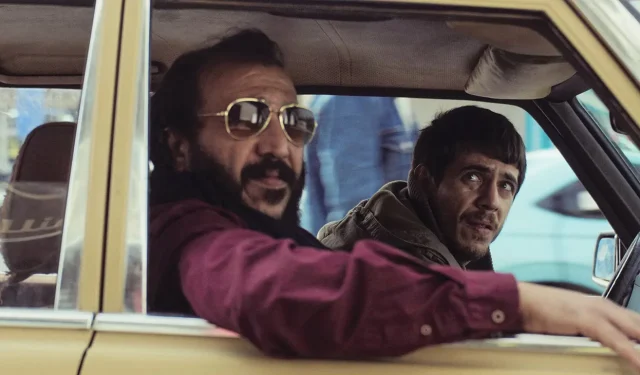Cannes Film Festival Press Conference: A Tense Moment on Gaza Response
The atmosphere at the Cannes Film Festival’s inaugural press conference on Tuesday was marked by a palpable tension. Jury president and celebrated French actress Juliette Binoche led the panel, which faced an awkward silence when a journalist inquired about the festival’s perceived indifference towards the ongoing conflict in Gaza.
During the press conference, Binoche was questioned about an open letter signed by more than 350 industry professionals, including luminaries such as Richard Gere and Susan Sarandon. This letter criticized the festival for not taking a definitive stance regarding the crisis. Binoche, however, perplexed the audience with her vague response, stating, “You will maybe understand it a little later,” before declining to elaborate further. Fortunately, French-Moroccan author Leïla Slimani stepped in to shift the conversation. Subsequent reports indicated that Binoche ultimately added her name to the letter, joining other notable actors like Joaquin Phoenix and Pedro Pascal.
The Human Cost of the Conflict
The open letter addresses the escalating violence in the Middle East, underscoring a horrific death toll of over 50,000 Gazans, as reported by the Hamas-run health ministry. This crisis deepened following a Hamas attack on an Israeli music festival on October 7, 2023, resulting in approximately 1,200 fatalities.
Cannes’ Mixed Response and Support for Palestinian Cinema
While the festival may have chosen to maintain a low profile officially, the Marché du Film warmly welcomed the Palestine Film Institute (PFI) to its international village adjacent to the Palais. “We’re not celebrating being in Cannes,” a PFI spokesperson remarked. “There’s nothing to celebrate for us… our goal is to reframe the narrative surrounding Palestinian cinema by with the filmmakers themselves. It’s a heavy responsibility, especially since some members have family in Gaza. This is not merely an industry for the privileged; it must evolve to accommodate voices from oppressed and underrepresented communities.”
Ambitious Initiatives from the Palestine Film Institute
This year’s Pavilion Program has been termed the PFI’s “most ambitious to date” since its inception in 2018, encapsulated under the theme #HereThereAndForever. The initiative encompasses various activities, including showcases, screenings, producer talks, and networking events, highlighting Palestinian producers and featuring renowned filmmakers like Arab and Tarzan Nasser, who present their film “Once Upon a Time in Gaza.”
Additionally, the PFI is hosting a screening and reception for “From Ground Zero,”a project spearheaded by filmmaker Rashid Masharawi. This anthology film compiles eight short documentaries and two feature films from 22 Palestinian directors, portraying life amid ongoing airstrikes in Gaza.
Launching a New Film Fund
A significant highlight of the PFI’s participation at Cannes this year is the launch of the PFI Film Fund, developed in collaboration with founding partners such as the IDFA Bertha Fund and International Media Support. “This is one of our dream projects,” expressed PFI representative Yaqubi. “Our aim for the first three rounds is to finance four to six different projects to provide a solid foundation for their growth.”
Moreover, the pavilion features an exhibition by Fatma Hassouna, a Palestinian photojournalist and artist. Unfortunately, Hassouna was tragically killed by an Israeli military strike in April, while she was working on Sepideh Farsi’s documentary “Put Your Soul on Your Hand and Walk,”which premieres at Cannes.
A Call for Empathy and Support
When asked about the level of support from the festival, Yaqubi remarked on the disconnect between Cannes’ institutional stance and the sentiments of the people involved. “We recognize the differences—the institute often adheres to broader geopolitical agendas, but the individuals here exhibit genuine empathy and solidarity. Of course, we owe our presence here to the support we’ve received from the festival, built over many years since 2016.”
The PFI largely relies on donations for funding. While the projects showcased at the festival may not exclusively focus on Palestinian issues, they are deeply entwined with the wider socio-political implications of elevating Palestinian voices on an international cinematic platform.
“We have a delegation of four producers participating in a producers’ network. They have an exciting slate, and I encourage everyone to check it out,” Yaqubi noted. “These upcoming Palestinian films and narratives deserve our support.”
“We aspire to maintain our presence here annually. It’s crucial; stepping back won’t instigate change. We must engage and strive to make a difference.”


